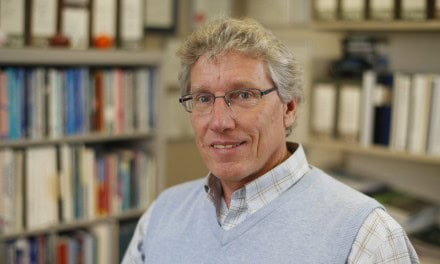Dr. Jean-Philippe Chaput co-authored a paper, “Adaptive thermogenesis can make a difference in the ability of obese individuals to lose body weight,” that was recently published in the International Journal of Obesity. A summary of the paper and citation details are below.
Tremblay A, Royer MM, Chaput JP, Doucet E. Adaptive thermogenesis can make a difference in the ability of obese individuals to lose body weight. Int J Obes (Lond). 2012 Jul 31. doi: 10.1038/ijo.2012.124.
ABSTRACT: The decrease in energy expenditure that occurs during weight loss is a process that attenuates over time the impact of a restrictive diet on energy balance up to a point beyond which no further weight loss seems to be possible. For some health professionals, such a diminished energy expenditure is the normal consequence of a progressive decrease in the motivation to exercise over the course of a weight-reducing program. Another explanation of decreased energy needs during weight loss is the decrease in body energy stores (that is, fat mass and muscle mass) and its related obligatory costs of living. Many studies have also documented the existence of adaptive thermogenesis in the context of weight loss, which represents a greater-than-predicted decrease in energy expenditure. In this paper, we pursue the analysis of this phenomenon by demonstrating that an adaptive decrease in thermogenesis can have a major role in the occurrence of resistance to further lose fat in weight-reduced obese individuals. Evidence is also presented to support the idea of greater hunger sensations in individuals displaying more pronounced thermogenic changes. Finally, as the decrease in thermogenesis persists over time, it is also likely associated with a greater predisposition to body-weight regain after weight loss. Globally, these observations suggest that the adaptive reduction in thermogenesis that accompanies a prolonged negative energy balance is a major determinant of the ability to spontaneously lose body fat.
Click here to read the paper for free in full.





